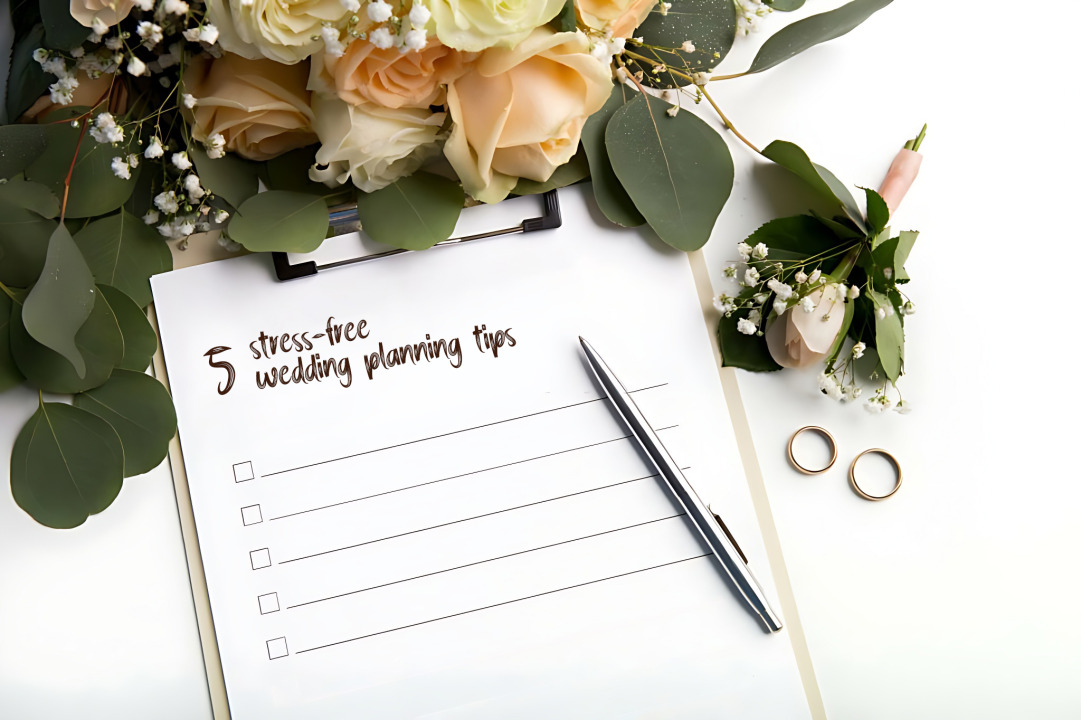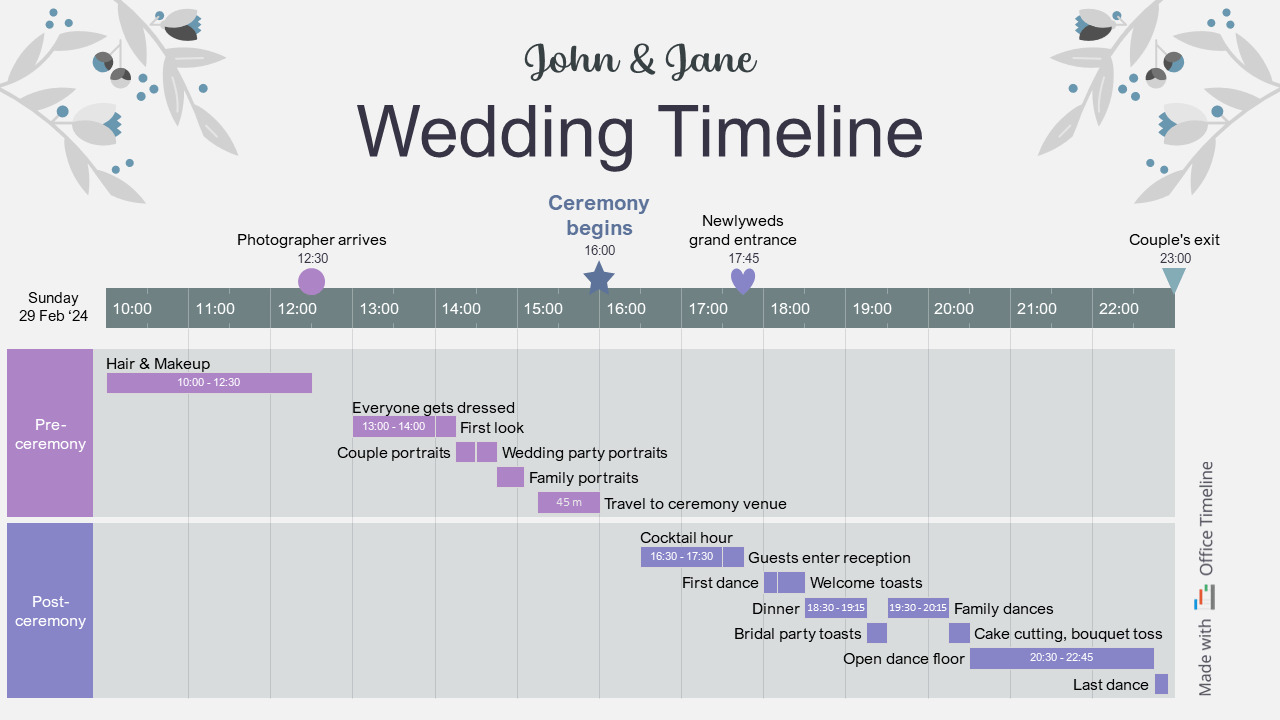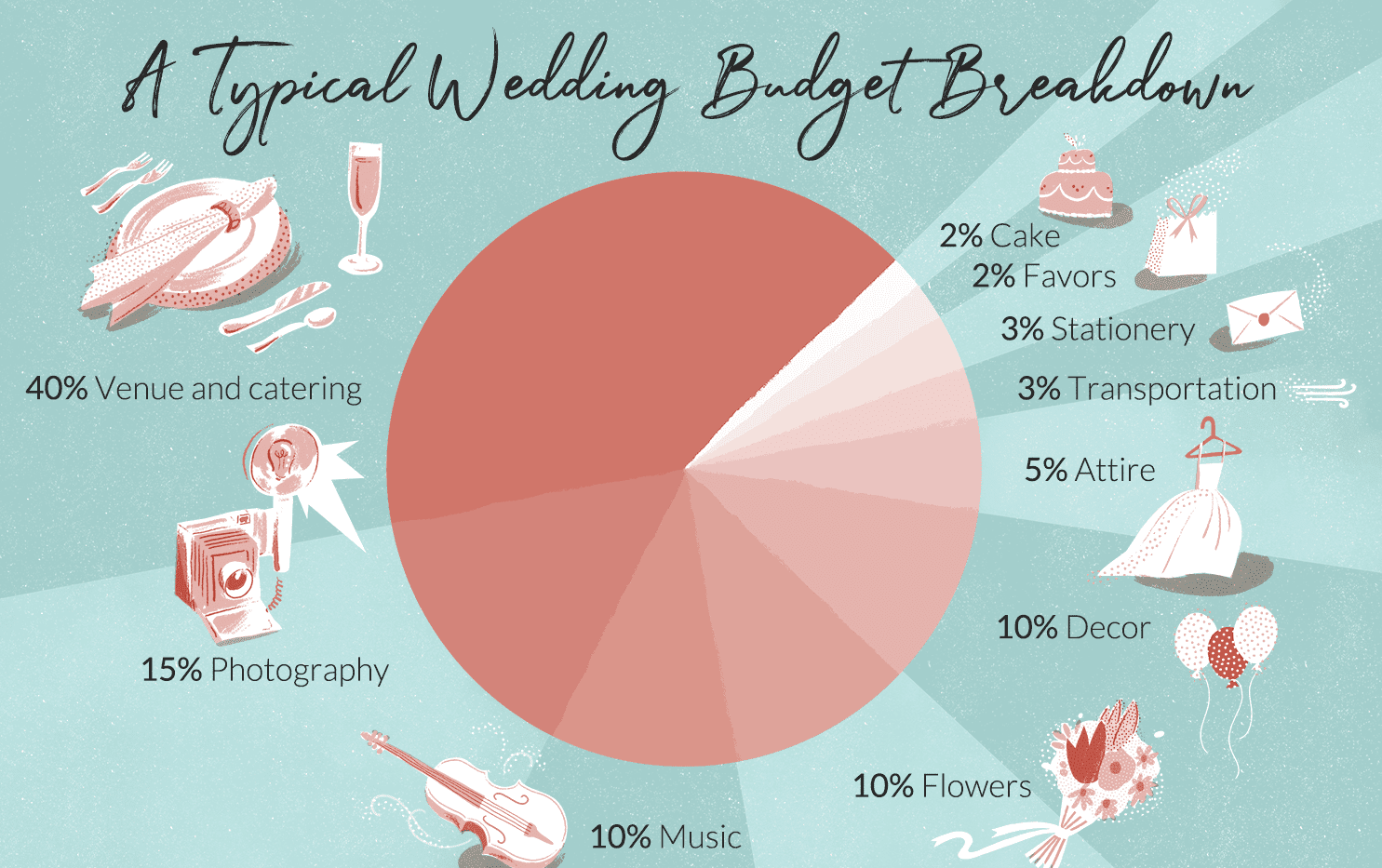Wedding planning can be an intense ride, filled with dizzying highs of joy and deep furrows of stress. Add a full-time job into the mix, and the journey can become even more challenging. But, fret not. It’s entirely possible to balance work and wedding planning without losing your sanity. This guide will walk you through some practical strategies to keep stress at bay and make your wedding preparations a fun and enjoyable journey.
Find, shortlist and get free quotes from best-suited venues and vendors for your upcoming event.
Why Is Wedding Planning Stressful?

Before we dive into the strategies, let’s first understand why wedding planning can be stressful, especially when juggling it alongside a full-time job.
1. High Expectations

Weddings are often perceived as once-in-a-lifetime events, leading to immense pressure to make them perfect. The quest to meet not just your expectations, but also those of your families and society, can add to the stress.
2. Financial Pressure

Managing wedding expenses can be a daunting task. Financial concerns can strain your relationship and add to the overall stress.
3. Complex Family Dynamics

Navigating through family opinions and expectations can be challenging and emotionally draining. This complexity can amplify the stress, especially for couples who don’t have sufficient family support.
4. Decision Overload

Countless decisions need to be made, from choosing the venue to picking the flowers, leading to decision fatigue and anxiety.
5. Time Constraints

Juggling wedding planning with work, social commitments, and other responsibilities can often leave you feeling stretched thin, adding to the stress.
Practical Strategies for Stress-Free Wedding Planning

Now that we understand the reasons behind the stress, let’s explore some practical strategies to ensure that wedding preparations don’t become a source of tension.
1. Set a Regular Schedule for Wedding Planning

Start by setting clear boundaries for when you and your partner will discuss wedding planning. Dedicate specific days or times each week for these discussions. This approach will prevent overwhelm and help maintain the balance in your relationship.
2. Divide the Work

Make a list of all tasks associated with planning your wedding. Then, divide the tasks among you and your partner. This approach ensures that both of you are equally involved in the planning process and reduces the burden on one person.
3. Regular Check-Ins

Make a habit of checking in with each other about how the planning process is impacting you. Acknowledge the stressors and emotions that arise during this process. Remember, you’re in this together, and open communication fosters a deeper connection.
4. Knowing When to Pause

Not every wedding decision requires immediate attention. Learn to discern what can wait. Your relationship should always take precedence over wedding logistics.
Find, shortlist and get free quotes from best-suited venues and vendors for your upcoming event.
5. Embrace Your Individual Style

Don’t feel pressured to conform to conventional wedding norms. Let your day reflect your personalities and style. Whether it’s choosing unconventional venues, non-traditional ceremonies, or personalized vows, make decisions that resonate with you.
6. Regular Date Nights

Keep up regular date nights or restart them if they’ve slowed down. Spend time together talking about any and everything – except the wedding.
Delegate Tasks

Delegating tasks can be a game-changer. Don’t try to handle everything on your own. Delegate wedding tasks to your partner, family members, or close friends. Consider hiring a wedding planner if your budget permits.
Use Technology

Utilize wedding planning apps to streamline tasks such as guest list management, vendor communication, and budget tracking. This can help you stay organized and reduce stress.
Communicate With Your Employer

Keep your employer informed about your wedding plans to avoid any work-related conflicts. Be open and clear about your hectic schedule.
Practice Self-Care

Self-care is crucial during this hectic time. Make time for exercise, sleep, and relaxation to maintain your physical and mental well-being.
Set Priorities

Recognize your top priorities for both work and wedding planning. Allocate your time and energy accordingly.
Create a Budget

Every wedding needs a budget. Having a clear understanding of where to allocate your budget and how it’s adding up will give you peace of mind.
Remembering Why You’re Getting Married

Your engagement period should be a time of joy, growth, and connection. By implementing these mindful strategies and keeping your focus on the love that brought you together, you’ll ensure that wedding planning enhances your relationship rather than detracts from it.
Balancing work and wedding planning without losing your mind may seem challenging, but with the right strategies, it’s entirely possible. Remember to take one step at a time, ask for help when needed, and most importantly, enjoy the journey. After all, the most beautiful part of your story is the love you share. Celebrate that love not just on your wedding day but every day of your life together.
For A-Z of event planning – decorations and entertainment, contact us at weddings.venuelook.com, birthdays.venuelook.com, events.venuelook.com.
Find, shortlist and get free quotes from best-suited venues and vendors for your upcoming event.
You May Also Like:
- Navigating Wedding Date Dilemmas: Top 12 Mistakes Every Indian Couple Should Avoid
- Forever Begins Here: Your Ultimate Guide to Choosing the Perfect Wedding Date for 2024
- Trending Bridesmaid Outfits That Are Perfect For Indian Weddings
- Gorgeous Hairstyles for Indian Brides 2024
- Unique And Best Rose Mehndi Designs For Brides And Bridesmaids
- Ultimate Pre-Bridal Beauty Treatments for Grooming, Nourishment and Glow
- Easy Homemade DIY Beauty Masks for Brides To Be
- Trendy Outfits to Style Yourself for an Indian Wedding
- Bridal Wear Inspiration From Around The World
Have you sent out invitations for your upcoming event? If not, save paper and send free online invitations now.
Looking for a party venue? Browse and book best-suited party venues from VenueLook.com
 Event, Party & Wedding Planning Tips & Ideas for Celebrations Party and Event Planning Tips, Resources and Venues
Event, Party & Wedding Planning Tips & Ideas for Celebrations Party and Event Planning Tips, Resources and Venues










